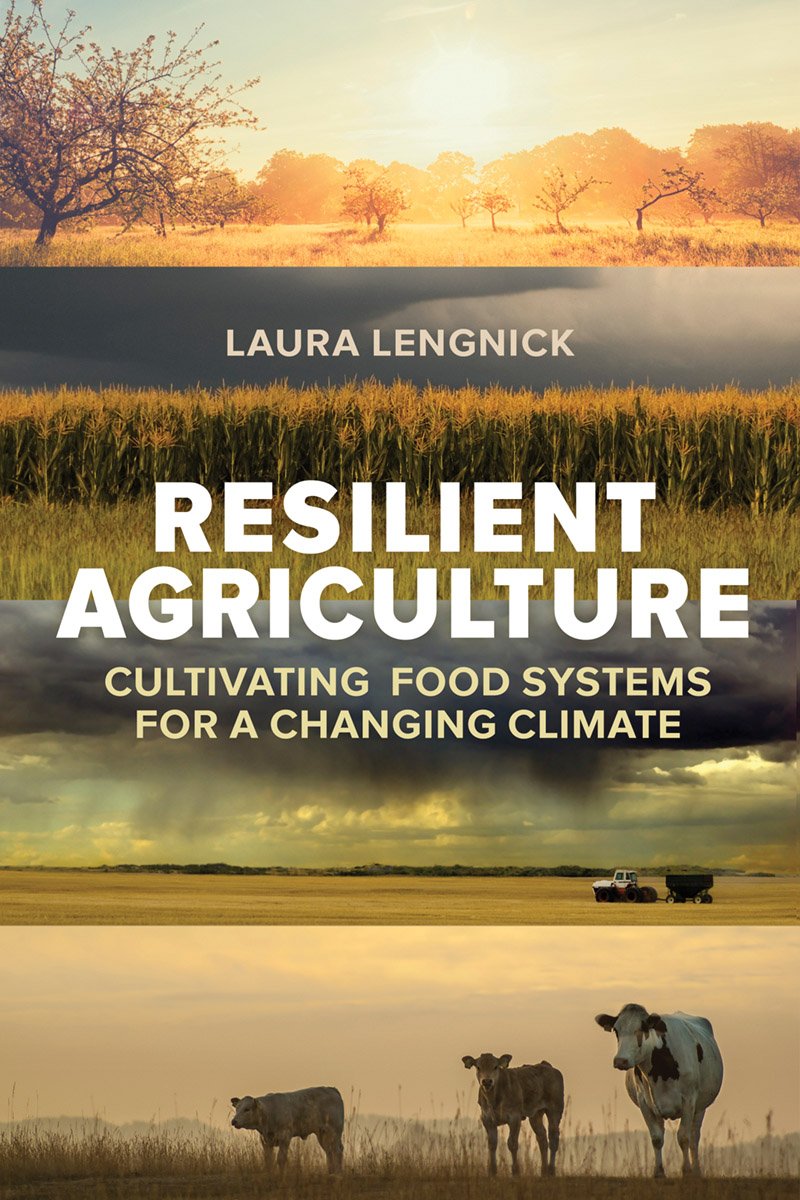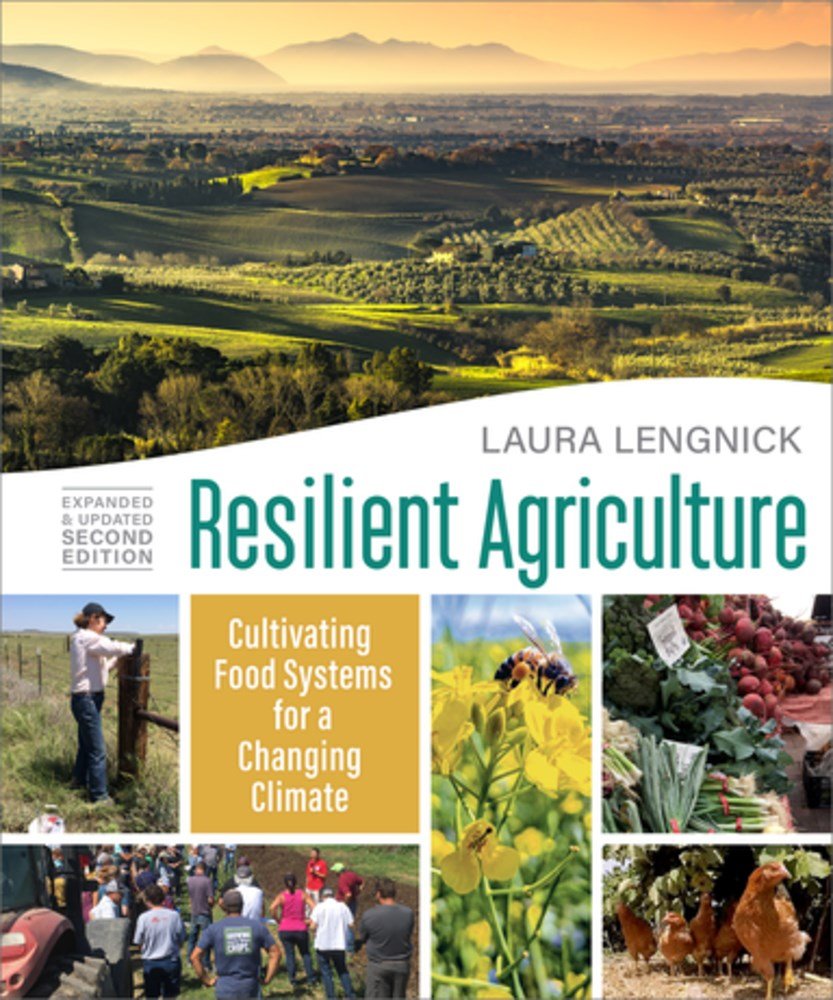Resilient Agriculture
Cultivating Food Systems for a Changing Climate

Climate change presents an unprecedented challenge to the productivity and profitability of agriculture in North America. More variable weather, drought, and flooding create the most obvious damage, but hot summer nights, warmer winters, longer growing seasons, and other environmental changes have more subtle but far-reaching effects on plant and livestock growth and development.
Resilient Agriculture recognizes the critical role that sustainable agriculture will play in the coming decades and beyond. The latest science on climate risk, resilience, and climate change adaptation is blended with the personal experience of farmers and ranchers to explore:

Laura Lengnick has been actively exploring the community-enhancing potential of agriculture and food systems for more than 30 years. Through her work as a researcher, policymaker, activist, educator and farmer, she has gained the expertise necessary to better understand what it takes to move sustainability values into action at every level. Laura has been nationally recognized for her advocacy work with a USDA Secretary's Honor Award, and she contributed to the 3rd National Climate Assessment as a lead author of the report Climate Change and U.S. Agriculture: Effects and Adaptation. She directs the academic program in sustainable agriculture at Warren Wilson College in Asheville, NC, and spends much of her free time growing food using biointensive and permaculture methods.

